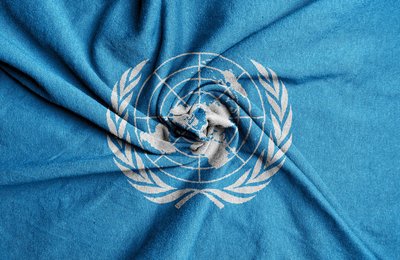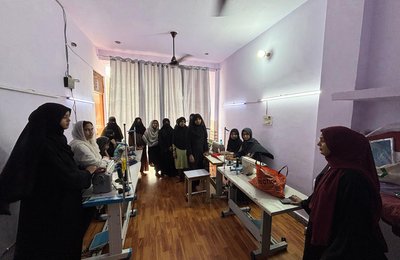I have just returned from Egypt, where the reality was rather different from government advice and some media reports. The German foreign office advised its nationals against travelling to Egypt; Netherlands newspapers were running reports of Bedouin kidnapping refugees for ransom and many police posts in Sinai deserted. In reality, I have never known the Sinai so safe and relaxed. Everyone I spoke to was delighted that the loathed black-clad police were confined to barracks, known as they are for corruption and demanding bribes for passage through checkpoints. In some cases, the checkpoints had been taken over by Bedouin, doing an apparently responsible job while barely able to conceal their sense of irony at the reversal of fortunes.
Everyone I spoke to was delighted that the loathed black-clad police were confined to barracks, known as they are for corruption and demanding bribes for passage through checkpoints.
 Protesters in Tahir Square. Photo by darkroom productions, published under a creative commons license.
Protesters in Tahir Square. Photo by darkroom productions, published under a creative commons license.By contrast with views of the police, I found no one who did not respect the conduct of the military. The tanks on Tahrir square calmly moved back and forth to avoid being pelted with molotov cocktails by thugs pretending to be revolutionaries. In Alexandria, the Interior Ministry’s intelligence branch were known to be hastily shredding evidence of torture; when their building was surrounded by a crowd demanding access and they started shooting unarmed protestors, the army was alerted, surrounded the building and let the people in. When asked what should be done about Libya, some said the Egyptian military should be sent in under the aegis of the Arab League, to surround and disarm Gaddafi’s forces. This could well be a less escalatory proposal than a no-fly zone imposed by a discredited West.
The power of resistance can often be calibrated by its sense of humourThe power of resistance can often be calibrated by its sense of humour, as with the powerful use of irony by the Otpor students in Belgrade in 1998, and Polish citizens taking their TV sets out for a stroll at evening news time in 1982, to show that they would not watch Communist-controlled media and to protest censorship of the Solidarity movement. In Cairo, the day after Mubarak stepped down, protestors were carrying placards saying, ‘Come back Mubarak, we were only joking.’ And everyone says that since the police disappeared, the traffic now flows in Cairo.








